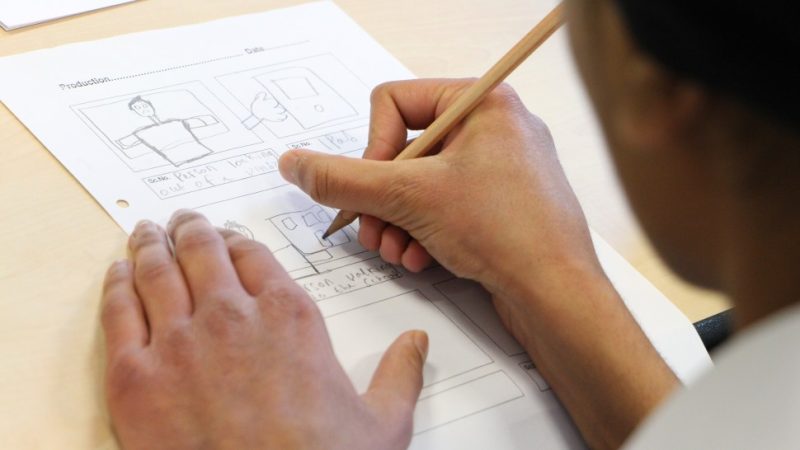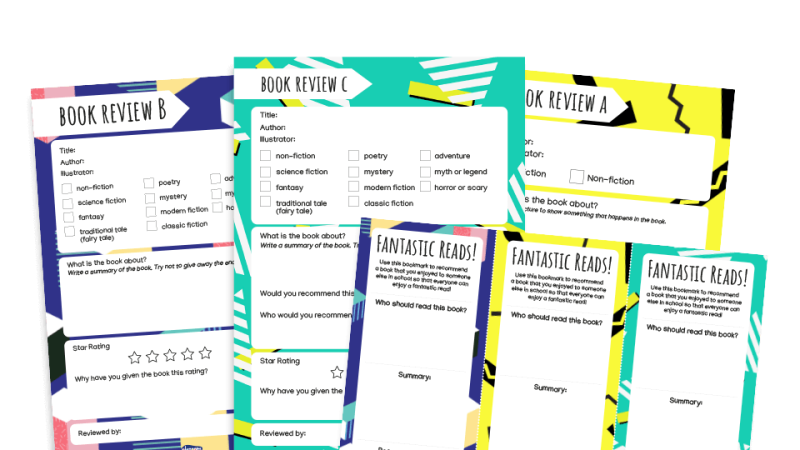Teach Shakespeare Across The Curriculum With 12 Amazing Activities To Rocket-Boost Learning

According to scientists, simply reading Shakespeare’s words can boost our brainpower – so why not make use of that in every subject?

There’s no better time to use Shakespeare for cross-curricular work in your school. As well as the recent 400th anniversary of Shakespeare’s death, scientists have proven that reading Shakespeare can produce ‘rocket-boosters’ to the brain. This means that when we encounter the playwright’s memorable lines or phrases it can light up our brains and set off significant electrical activity.
Bringing the Bard into your classroom doesn’t require you raid the costume cupboard for Elizabethan costumes or even put on your best thespian voice when reading his poetry – although your students would probably love it if you did! You can keep it much more simple. Use a starter activity to let learners engage with Shakespeare’s verse. Just one line from the Bard’s works could enrich a whole lesson and spark creative literacy games and activities.
Here are some ideas to get your students tapping their feet to iambic pentameter, reciting poetry, playing vocabulary games or competing in teams as word detectives.
Warm up to Shakespeare: starter activities for any subject
Activity one Often we use phrases that Shakespeare coined and do not even realise it! Put your pupils into teams and have fun testing their knowledge of the Bard with phrases like:
- A heart of gold
- Lie low
- Too much of a good thing
- A wild goose chase
- Not slept one wink
- Dead as a doornail
The team with the most points wins!
Activity two Ramp up your students’ team spirit with the game ‘Shout in Shakespeare’. On a PowerPoint, create 20 to 30 statements related to a topic, theme or concept you have covered with your class.
The aim of the game is to identify if these statements are true or false. But instead of each team saying “true” or “false”, they must use a Shakespearean quote. So if a statement is true, pupils could shout:
- “If music be the food of love play on”
- “Shall I compare thee to a summer’s day?”
- “Brevity is the soul of wit”
- “All the world’s a stage, and all the men and women merely players”
If a statement is false, pupils could shout:
- “To be or not to be, that is the question”
- “Now is the winter of our discontent”
- “Is this a dagger which I see before me?”
- “The lady doth protest too much, methinks”
Activity three Give students a handful of quotes. Ask them to vote for the wisest one:
- “Wise men ne’er sit and wail their loss, but cheerily seek how to redress their harms.”
- “Our doubts are traitors and cause us to miss the good we oft might win, by fearing to attempt.”
- “Let none presume to wear an undeserved dignity.”
- “This above all, to thine own self be true, and it must follow as the night the day, thou canst not then be false to any man.”
Get students to learn the wisest quote off by heart for the following lesson. Pupils can record themselves reading it aloud on their mobile phone. They can then play it back to help them memorise the line.
Activity four Tell your students that they are going to be word sleuths. Put them with partners and give each pair a list of Shakespeare’s words. The purpose of this quick activity is for students to figure out what each word means and discuss the modern English equivalent.
Sparking Shakespeare: subject-specific activities
Science Many of Shakespeare’s plays have gory assassinations and executions. Probably one of the most shocking is Macbeth’s stabbing of King Duncan in Macbeth. Make your students forensic experts for a lesson with the aim of solving a crime. Explain that King Duncan has been murdered and the person responsible needs to be caught. Build lots of anticipation and engagement by creating a crime scene in your classroom:
- Tape off the area where the stabbing supposedly took place
- Have props like the ‘bloody daggers’ and the blood-stained clothes of the king’s bodyguards
- Make a police report of what happened
- Provide profiles of the suspects and their testimonies after the king’s murder (Banquo, Malcom, Macbeth, Lady Macbeth and Lennox)
Ask students what clues they would look for: Fingerprints? Footprints? Hair, blood and fibre traces for testing? Get your class to write a forensic report.
Maths If maths is a study of patterns then why not use a Shakespearean sonnet for a lesson? Show pupils two Shakespeare sonnets, like, “My mistress eyes are nothing like the sun” or, “Shall I compare thee to a summer’s day?” and ask them to read the poems aloud to detect any patterns.
This will open up a discussion on the form of a sonnet as a 14-line poem which has a strict rhyme scheme of ABAB CDCD EFEF GG. Introduce iambic pentameter and get your pupils to tap their feet to the heartbeat rhythm.
History In the Elizabethan era only men could act and so often boys played women as their voices had not yet broken. In more recent times actresses have taken on roles of men in Shakespeare’s plays. Give your boys a speech from one of Shakespeare’s female protagonists and give your female pupils a speech from one of Shakespeare’s male protagonists. Get pupils to practice this monologue like an actor would. How will they perform their speech in a persuasive and authentic way?
Mark the Bard: a whole-school drop down day
- Arrange a treasure hunt where lines from Shakespeare’s plays and related props are hidden in interesting places.
- Have a sponsored Shakespeare filmathon where students watch as many Shakespeare films as possible. All money raised could go towards a school trip to Shakespeare’s birthplace, Stratford-upon-Avon.
- Ask students to get their parents to sponsor them to dress up as a Shakespeare character and memorise one of their speeches. All money raised could pay for a school visit to the Globe theatre.
- Arrange an exhibition of students’ paintings inspired by Shakespeare’s plays or poetry.
- Sponsor students to use Shakespearean language for one day with words like: “doth” instead of “does”; “prithee” for “please”; “nay” for “no”; and “ay” for “yes”.
Sophie Holdforth is senior teaching and learning/literacy consultant at the Hackney Learning Trust. Sophie has written a cross-curricular teaching resource for the National Literacy Trust, packed full of creative ways to teach Shakespeare to KS3 & 4 pupils: tinyurl.com/crosscurriculumshakespeare
Browse more resources for Shakespeare Week.











